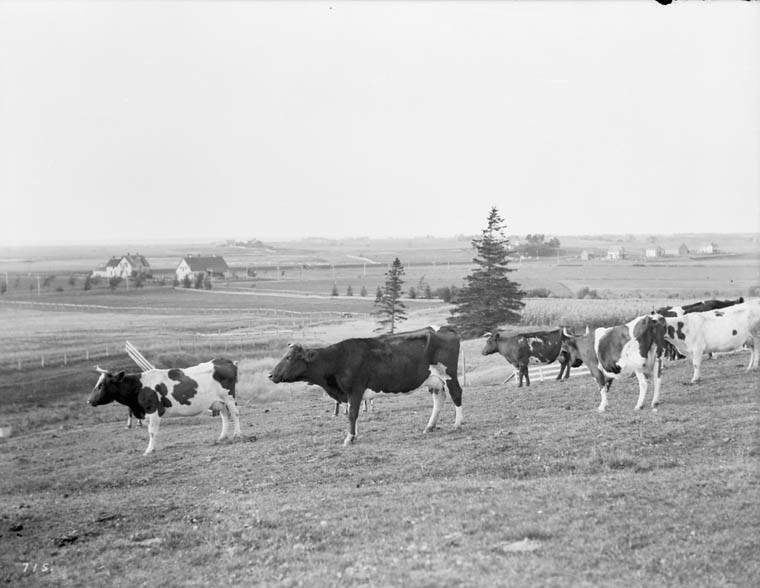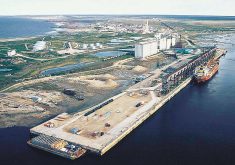Former senior U.S. trade negotiator Joe Glauber could see the “Stop CETA” banner draped from a Brussels overpass as he travelled through the EU city on his way to Winnipeg to deliver the 8th annual Daryl F. Kraft lecture late last month.
Within days, that is exactly what happened as Wallonia, a tiny regional government in Belgium few of us has ever heard about, exerted its ability to hold up the works.
Around the same time, U.S. presidential contender Donald J. Trump was declaring for the umpteenth time in televised debates that NAFTA is “the worst trade deal ever negotiated in the history of this country,” and front-runner Hillary Clinton was distancing herself from the Trans-Pacific Trade Partnership Agreement.
Read Also

Government silence loud on AAFC cuts
Canada’s federal government trumpets fiscal responsibility; their silence on a day of massive Agriculture and Agri-Food Canada cuts was baffling at best.
Trump has said he would withdraw the U.S. from NAFTA, a distinct possibility given the vote in Britain just months earlier to leave the EU. Meanwhile, the Doha Round of the World Trade Negotiations has been limping along since 2001 with no agreement in sight.
Glauber, who once served as chief economist for the U.S. Department of Agriculture and a special envoy with the U.S. Trade Representative’s Office in the Doha WTO round, told his Winnipeg audience that he finds the backlash against work he’s spent most of his career doing “distressing.”
But it is a sign of troubling times for trade deals.
“You have a significant percentage of people in the U.S. who thinks that trade agreements are basically bad,” he noted. In the current environment, he’s convinced that the Trans-Pacific Partnership is in trouble and negotiations between the U.S. and the EU have little chance of moving forward.
Glauber admits to being astonished by this turn in history, but he also acknowledges that the fault, at least in part, lies with people like him.
“We haven’t done a good enough job communicating the benefits, and we’ve been poor at treating the casualties for trade deals,” Glauber said. “There’s real bitterness in these places.”
In short, trade agreements have become the face of globalization, even though they aren’t its cause. “Trade deals aren’t isolated events, they can accelerate a process and I think they have certainly contributed to a growth in globalization,” he said.
Glauber, who now works for the International Food Policy Research Institute, said it was clear from the beginning of the Doha Round that the appetite for multilateral trade agreements was waning. The so-called “development round” was supposed to bring the emerging economies into the fold, but deep chasms emerged around the insistence by some that domestic food security concerns trump free-market philosophies.
However, even in the absence of a new WTO agreement, global agricultural trade has tripled since 2001, he noted.
So globalization has been happening anyway, he said, adding jobs and production naturally flow to regions that offer lower costs of production. In classic economy theory, that’s a good thing, because it drives efficiency.
However, it also creates winners and losers.
It would seem that the potential winners in these deals get all the attention, and the losers are largely ignored — until they roar.
The politicians of the economically deprived Wallonia saw no benefits accruing to their citizens from CETA. In fact, they foresaw more manufacturing plant closures and more competition for their agricultural sector — namely dairy — in a region that already boasts 16 per cent unemployment, among the highest in Europe. They had nothing to lose and everything to gain by asserting their right to be heard.
“We want to regulate the market, we want to protect citizens, for that we fought, and I think it was worth it because we were heard,” said Paul Magnette, premier of the Walloon region after attaching an addendum that clarifies the deal.
The same could be said about the angry tirade against open borders unleashed during the Brexit debate in the U.K. and now during the U.S. presidential election. Trump has refused to commit to accepting the outcome of the U.S. vote if he loses, which raises the spectre of civil disorder in one of the world’s most developed democracies.
There is a message in all this that governments worldwide ignore at their peril.
Governments have frequently used the guise of international discipline as reason to withdraw from commitments to their citizens, giving rise to forces that are embittered and unpredictable.
Instead of using trade deals to accelerate a process that is already occurring, perhaps governments through their trade negotiators must start developing international agreements that have checks and balances focused on an orderly transition to global trade — one that leaves no one behind.















